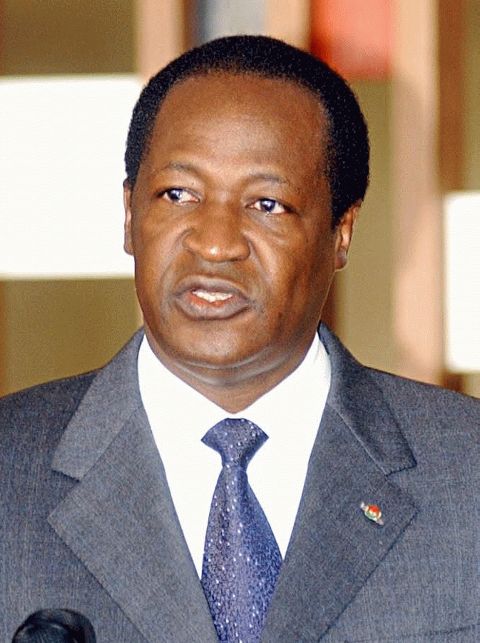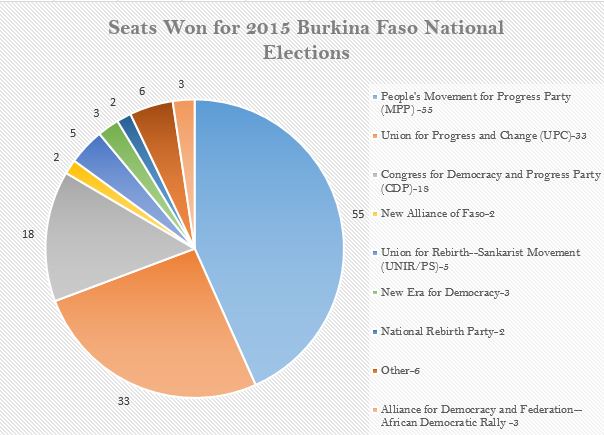|
1974 Upper Voltan Coup D'état
The 1974 Upper Voltan coup d'état was a bloodless military coup which took place in the Republic of Upper Volta on 8 February 1974. The coup was effectively a self-coup, orchestrated by President General Sangoulé Lamizana (in office since the 1966 coup), against the RDA-led government of Prime Minister Gérard Kango Ouédraogo, formed following the 1970 parliamentary election. African Elections Database Lamizana announced the dissolution of the National Assembly and the suspension of the Constitution, adopted following the [...More Info...] [...Related Items...] OR: [Wikipedia] [Google] [Baidu] |
Ouagadougou
Ouagadougou ( , , ) is the capital and largest city of Burkina Faso and the administrative, communications, cultural, and economic centre of the nation. It is also the country's largest city, with a population of 2,415,266 in 2019. The city's name is often shortened to ''Ouaga''. The inhabitants are called ''ouagalais''. The spelling of the name ''Ouagadougou'' is derived from the French orthography common in former French African colonies. Ouagadougou's primary industries are food processing and textiles. It is served by an international airport and is linked by rail to Abidjan in the Ivory Coast and, for freight only, to Kaya. There are several highways linking the city to Niamey, Niger, south to Ghana, and southwest to Ivory Coast. Ouagadougou has one of West Africa's largest markets, which burned down in 2003 and has since reopened with better facilities and improved fire-prevention measures. Other attractions include the National Museum of Burkina Faso, the Moro-Naba Palac ... [...More Info...] [...Related Items...] OR: [Wikipedia] [Google] [Baidu] |
List Of Prime Ministers Of Burkina Faso
This is a list of prime ministers of Burkina Faso since the formation of the post of Prime Minister of the Republic of Upper Volta in 1971 to the present day. A total of fifteen people have served as Prime Minister of Upper Volta/Burkina Faso (not counting two Interim Prime Ministers). The current interim Prime Minister of Burkina Faso is Apollinaire Joachim Kyélem de Tambèla, since 21 October 2022. Key ;Political parties * * * ;Other factions * * ;Status * List of officeholders Timeline See also * Politics of Burkina Faso * List of heads of state of Burkina Faso * List of colonial governors of French Upper Volta References External links World Statesmen – Burkina Faso {{Prime Minister Burkina Faso Prime ministers Prime ministers A prime minister, premier or chief of cabinet is the head of the cabinet and the leader of the ministers in the executive branch of government, often in a parliamentary or semi-presidential system. Under those systems, a ... [...More Info...] [...Related Items...] OR: [Wikipedia] [Google] [Baidu] |
Conflicts In 1974
Conflict may refer to: Arts, entertainment, and media Films * ''Conflict'' (1921 film), an American silent film directed by Stuart Paton * ''Conflict'' (1936 film), an American boxing film starring John Wayne * ''Conflict'' (1937 film), a Swedish drama film directed by Per-Axel Branner * ''Conflict'' (1938 film), a French drama film directed by Léonide Moguy * ''Conflict'' (1945 film), an American suspense film starring Humphrey Bogart * ''Catholics: A Fable'' (1973 film), or ''The Conflict'', a film starring Martin Sheen * ''Judith'' (1966 film) or ''Conflict'', a film starring Sophia Loren * ''Samar'' (1999 film) or ''Conflict'', a 1999 Indian film by Shyam Benegal Games * ''Conflict'' (series), a 2002–2008 series of war games for the PS2, Xbox, and PC * ''Conflict'' (video game), a 1989 Nintendo Entertainment System war game * '' Conflict: Middle East Political Simulator'', a 1990 strategy computer game Literature and periodicals * ''Conflict'' (novel) ... [...More Info...] [...Related Items...] OR: [Wikipedia] [Google] [Baidu] |
1970s Coups D'état And Coup Attempts
Year 197 ( CXCVII) was a common year starting on Saturday (link will display the full calendar) of the Julian calendar. At the time, it was known as the Year of the Consulship of Magius and Rufinus (or, less frequently, year 950 ''Ab urbe condita''). The denomination 197 for this year has been used since the early medieval period, when the Anno Domini calendar era became the prevalent method in Europe for naming years. Events By place Roman Empire * February 19 – Battle of Lugdunum: Emperor Septimius Severus defeats the self-proclaimed emperor Clodius Albinus at Lugdunum (modern Lyon). Albinus commits suicide; legionaries sack the town. * Septimius Severus returns to Rome and has about 30 of Albinus's supporters in the Senate executed. After his victory he declares himself the adopted son of the late Marcus Aurelius. * Septimius Severus forms new naval units, manning all the triremes in Italy with heavily armed troops for war in the East. His soldiers embark on an ... [...More Info...] [...Related Items...] OR: [Wikipedia] [Google] [Baidu] |
1974 In Upper Volta
Major events in 1974 include the aftermath of the 1973 oil crisis and the resignation of United States President Richard Nixon following the Watergate scandal. In the Middle East, the aftermath of the 1973 Yom Kippur War determined politics; following Israeli Prime Minister Golda Meir's resignation in response to high Israeli casualties, she was succeeded by Yitzhak Rabin. In Europe, the invasion and occupation of northern Cyprus by Turkish troops initiated the Cyprus dispute, the Carnation Revolution took place in Portugal, and Chancellor of West Germany Willy Brandt resigned following an espionage scandal surrounding his secretary Günter Guillaume. In sports, the year was primarily dominated by the FIFA World Cup in West Germany, in which the German national team won the championship title, as well as The Rumble in the Jungle, a boxing match between Muhammad Ali and George Foreman in Zaire. Events January–February * January 26 – Bülent Ecevit of CHP ... [...More Info...] [...Related Items...] OR: [Wikipedia] [Google] [Baidu] |
History Of Burkina Faso
The history of Burkina Faso includes the history of various kingdoms within the country, such as the Mossi kingdoms, as well as the later French colonisation of the territory and its independence as the Republic of Upper Volta in 1960. Ancient and medieval history Iron production occurred in regions near Douroula at least as far back as the 8th century BC and was widely practiced across the region by the 5th century BC. Furnaces, mines, and surrounding dwellings dating from this time period are found across the country. Recent archeological discoveries at Bura in southwest Niger and in adjacent southwest Burkina Faso have documented the existence of the iron-age Bura culture from the 3rd century to the 13th century. The Bura-Asinda system of settlements apparently covered the lower Niger River valley, including the Boura region of Burkina Faso. Further research is needed to understand the role this early civilization played in the ancient and medieval history of West Afric ... [...More Info...] [...Related Items...] OR: [Wikipedia] [Google] [Baidu] |
Officer (armed Forces)
An officer is a person who holds a position of authority as a member of an armed force or uniformed service. Broadly speaking, "officer" means a commissioned officer, a non-commissioned officer, or a warrant officer. However, absent contextual qualification, the term typically refers only to a force's ''commissioned officers'', the more senior members who derive their authority from a commission from the head of state. Numbers The proportion of officers varies greatly. Commissioned officers typically make up between an eighth and a fifth of modern armed forces personnel. In 2013, officers were the senior 17% of the British armed forces, and the senior 13.7% of the French armed forces. In 2012, officers made up about 18% of the German armed forces, and about 17.2% of the United States armed forces. Historically, however, armed forces have generally had much lower proportions of officers. During the First World War, fewer than 5% of British soldiers were officers (partly ... [...More Info...] [...Related Items...] OR: [Wikipedia] [Google] [Baidu] |
1970 Upper Voltan Constitutional Referendum
A constitutional referendum was held in the Republic of Upper Volta on 14 June 1970. It followed the 1966 military coup, and would restore multi-party democracy. However, the new constitution made the country a presidential republic, with the President able to dissolve the National Assembly and rule by decree. It also allowed coup leader Sangoulé Lamizana to remain President for a further four years.Elections in Burkina Faso African Elections Database It was approved by 98.56% of voters with a 77.3% turnout. Results References {{Burkinabe elections1970
Events
January
* January 1 – Unix time epoch re ...
[...More Info...] [...Related Items...] OR: [Wikipedia] [Google] [Baidu] |
Constitution Of Burkina Faso
The Constitution of Burkina Faso was approved by referendum on 2 June 1991, formally adopted 11 June 1991 and last amended in January 2002. The last amendment abolished the upper chamber of the parliament, the Chamber of Representatives. In 2015, President Kaboré promised to revise the 1991 constitution. The revision was completed in 2018. One condition prevents any individual from serving as president for more than ten years either consecutively or intermittently and provides a method for impeaching a president. A referendum on the constitution for the Fifth Republic was erroneously announced for 24 March 2019 but has not actually been officially scheduled. Certain rights are also enshrined in the revision: access to drinking water, decent housing, and recognition of the right to civil disobedience, for example. The referendum was required because the opposition parties in Parliament refused to sanction the revised wording. On 24 January 2022, following a coup d'état, the ... [...More Info...] [...Related Items...] OR: [Wikipedia] [Google] [Baidu] |
National Assembly Of Burkina Faso
The unicameral National Assembly is Burkina Faso's legislative body. In 1995, it became the lower house of a bicameral Parliament, but the upper house ( Chamber of Representatives) was abolished in 2002. The upper house was to have been restored under the name "Senate" in the June 2012 constitutional amendments. This revision was never executed due to an extended and unresolved political confrontation over the Senate's establishment, which left the country effectively with a unicameral legislature as of the October 2014 constitutional crisis. On 30 October 2014, as part of the 2014 Burkinabé uprising, protesters stormed the parliament building and set fire to it, in anger at the Parliament's decision to amend the Constitution of Burkina Faso to abolish term limits, which would have effectively paved the way for President Blaise Compaoré to remain in office for another five-year term. On 24 January 2022, during the January 2022 Burkinabé coup d'état, President Kaboré was d ... [...More Info...] [...Related Items...] OR: [Wikipedia] [Google] [Baidu] |
1970 Upper Voltan Parliamentary Election
Parliamentary elections were held in the Republic of Upper Volta on 20 December 1970, following the restoration of multi-party democracy in a referendum earlier in the year. The result was a victory for the former sole legal party, the Voltaic Democratic Union–African Democratic Rally, which won 37 of the 57 seats in the National Assembly. Voter turnout was 48.3%. Inter-Parliamentary Union Results References {{Burkinabe elections Elections in Burkina FasoUpper Volta
Upper Volta (now named Burk ...
[...More Info...] [...Related Items...] OR: [Wikipedia] [Google] [Baidu] |
1966 Upper Voltan Coup D'état
The 1966 Upper Voltan coup d'état was an event which took place on 3 January 1966 in the Republic of Upper Volta (today Burkina Faso), when following large-scale popular unrest the military intervened against the government, forced President Maurice Yaméogo to resign, and replaced him with Lieutenant Colonel Sangoulé Lamizana. Lamizana would go on to rule until 1980, when yet another military ''coup d'état'' overthrew him. The 1966 coup would prove to be the first in a long line of Upper Voltan and later Burkinabé coups, both failed and successful such, and marked the beginning of half a century of military rule. History Background French Upper Volta, a small, landlocked and largely impoverished colony of France had been decolonized in 1960. Maurice Yaméogo, a close ally of the Ivorian President Félix Houphouët-Boigny, created a single-party dictatorship, making his own Voltaic Democratic Union the sole legal political party in the country. Opposition parties, like the Af ... [...More Info...] [...Related Items...] OR: [Wikipedia] [Google] [Baidu] |

.jpg)



